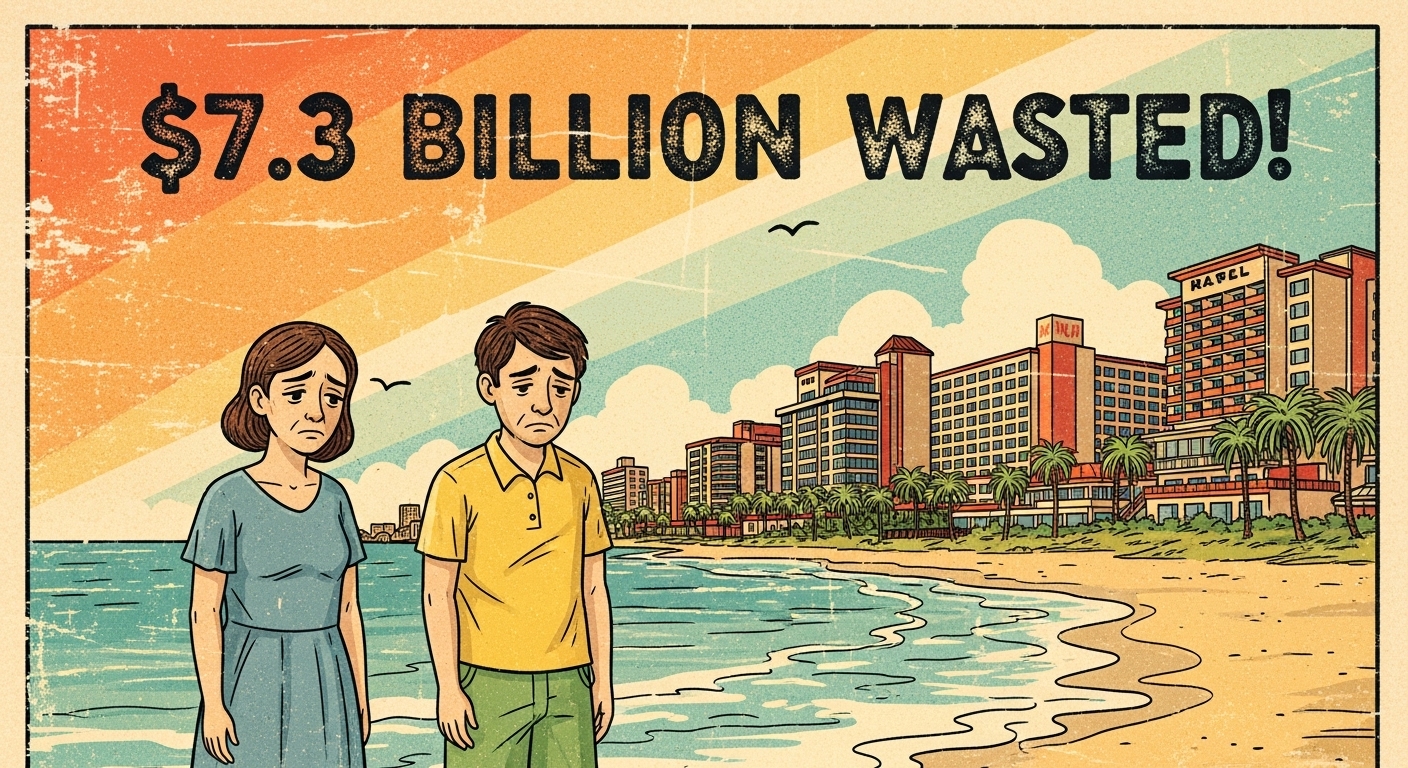
At Timeshares.life, we are pretty explicit about our belief in the number one rule: never buy a timeshare directly from the developer. The latest data from the 2025 State of the Vacation Timeshare Industry report starkly illustrates why.
In 2024, over 453,000 contracts were entered into directly with developers by consumers who clearly were unaware of this golden rule. Their collective spending hit a staggering $10.5 billion, relatively stable to years past. Reviewing the average price paid for these contracts compared to the average price of the same resort’s contract on the resale markets shows a more than 70% premium paid to developers for the free tours and rounds of golf. In terms of net dollars, that’s an estimated $7.3 billion—was essentially wasted, paid as a premium for a product that could have been purchased for a fraction of the price on the resale market.
The numbers are shocking when laid out. Let’s break down the real cost of buying a new timeshare versus buying on the resale market.
| Metric | Developer Price | Resale Market | The Difference |
| Average Contract Price | $23,160 | ~$7,000 | $16,160 (70% less) |
| Total 2024 Sales Volume | $10.5 Billion | N/A | $7.35 Billion “Overpaid” |
The data is clear. The average new timeshare sold by a developer in 2024 cost $23,160. This is the price developers convince buyers is the “value” of their vacation ownership, and the premiums and benefits they might offer associated with it. However, a quick look at Redweek.com tells a dramatically different story, with contracts from top brands like Hilton, Marriott, and Wyndham averaging around $7,000.
That’s a $16,160 difference between buying new and buying resale. For essentially the same access to vacation properties, consumers who buy on the resale market are paying approximately 70% less.
While developers may argue that their new contracts come with different benefits or fewer restrictions, the core product—the ability to vacation at a network of resorts—is fundamentally the same. The enormous price disparity highlights that the developer’s sales price is heavily inflated to cover marketing costs, sales commissions, and significant profits, not the intrinsic value of the timeshare itself.
If every one of these contracts was bought on the resale market, instead, that’s a jaw-dropping $7.35 Billion overpaid and could either be saved or thrown into more timeshares!
As our analysis of buying direct vs. buying resale outlined, this is totally unnecessary, and not the way to find the incredible value that timeshares have to offer.




